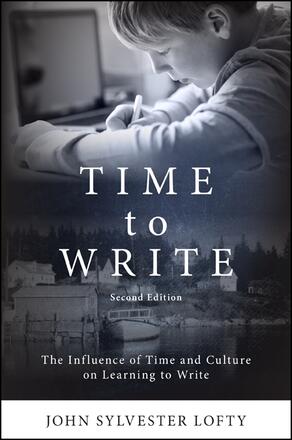
Time to Write, Second Edition
The Influence of Time and Culture on Learning to Write
Alternative formats available from:
Analyzes interviews with students, teachers, and administrators to develop a new set of literacies essential for student success in the digital age.
Description
"To read John's work is to take on the role of a patient listener … A book, like a piece of music, is scored for time, and I feel Time to Write is scored adagio. … I believe that Time to Write can be read as a critique of [the] time-chopping approach to education—and an argument for presence, for being fully open to experience, for being there … To do good work, we must enter something like 'island time' or what John calls 'existential time'—or what is sometimes called 'flow' when we lose, at least temporarily, a sense of clock time. " — from the Foreword by Thomas Newkirk
Twenty-five years ago, John Sylvester Lofty studied the influence of cultural time values on students' resistance to writing instruction in an isolated Maine fishing community. For the new edition of Time to Write, Lofty returned to the island to consider how social and educational developments in the intervening years may have affected both local culture and attitudes toward education. Lofty discovered how the island time values that previously informed students' literacy learning have been transformed by outside influences, including technology, social media, and the influx of new residents from urban areas. Building on the ethnographic findings of the original study, the new edition analyzes the current conflict between the digital age time values of constant connections and instant communication, and those of school-based literacy. Lofty examines the new literacies now essential for students in a technologically connected world, both those who aspire to continue the traditional island work of lobster fishing, and for the many who now choose to pursue other careers and attend college on the mainland.
John Sylvester Lofty is Emeritus Professor of English Education at the University of New Hampshire and the author of Quiet Wisdom: Teachers in the United States and England Talk about Standards, Practice, and Professionalism.
Reviews
". ..highly valuable … compelling and richly illustrated … a meaningful second edition. " — Kronoscope